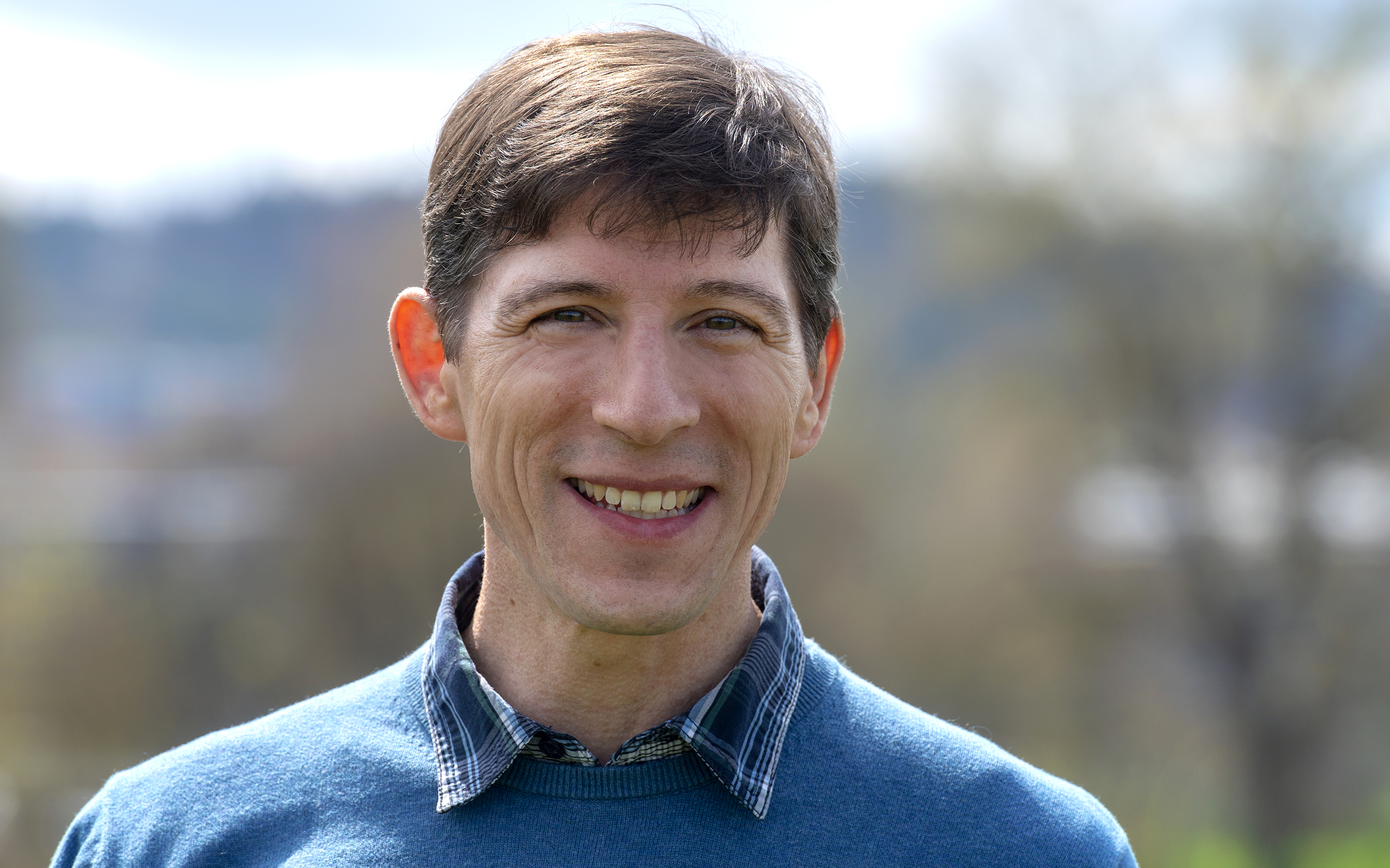When he talks about plant breeding, his eyes shine: Roland Peter, Head of Agroscope’s ‘Plant Breeding’ Strategic Research Division since 15 January 2019, describes the motivation for breeding new crop-plant varieties as follows: “Every breeder is thrilled with his new varieties which are successful in the sector, and which help solve pressing agricultural problems. Plant breeding packs progress in a seed, so to speak.”
Some of the new maize varieties developed at his previous job are actually now grown on his brother’s farm near Winterthur. His new job has also brought him back to his roots. And he’s delighted with the various breeding programmes at Agroscope that develop appropriate varieties for Switzerland, but which are also garnering a lot of international recognition.
From Swiss landraces to international maize breeding
Whilst working on his PhD at the ETH Zurich, Roland Peter remained in ‘small-scale’ Switzerland. He studied traditional landraces of maize in order to harness them as genetic resources for further breeding. He was particularly fascinated by physiological traits such as chilling tolerance, and this work catapulted him from Switzerland into the wider world. In 2008, he moved together with his wife to the German plant-breeding and biotechnology company KWS SAAT SE in Einbeck. She became involved in sugar-beet breeding, while he stuck with maize.
Roland Peter started off as Head of the Maize Breeding Programme for the Late Maturity Groups in Southeastern Europe, Head of the ‘Genetic Resources’ Project, and Maize Breeding Advisor for KWS China. “Maize breeding is a decentralised matter involving a great deal of seed logistics. In winter, maize breeding activities shift towards the southern hemisphere, e.g. to Chile or Puerto Rico, so that a second or even a third maize generation per year can be grown. This has accelerated the breeding process enormously, allowing us to achieve a new, more productive, homogeneous variety with its own profile more quickly” he says, describing his previous work. Roland Peter also appreciated the contact with people of different cultures, and finds the diversity at Agroscope fruitful as well.
Following his varieties – to Agroscope
From 2012 until he moved to Agroscope, Roland Peter headed the German maize-breeding programme, and was responsible for grain- and silage-maize variety development. At the same time, he also started having dealings with Agroscope: Year after year, KWS applied some of his new varieties for official testing at Agroscope. A number found their way into the annually published List of Recommended Maize Varieties. Roland Peter smiles modestly and refuses to name any names. His pride in his maize ‘offspring’ is clear to see, however.
Now, he’ll no longer be packing progress into a seed himself – instead, he is expanding his focus to other plant species – apples, cereals, soybeans and various fodder plants. “Researching for the food sector is very satisfying – for high quality and good crops, but also for sustainable production.” He wants to make his mark with his research division, make crops climate-change-proof, find solutions for changing needs in agriculture and society. In this way, the father of two is doing his bit for the next generation, for elegant solutions straight from the seed.






